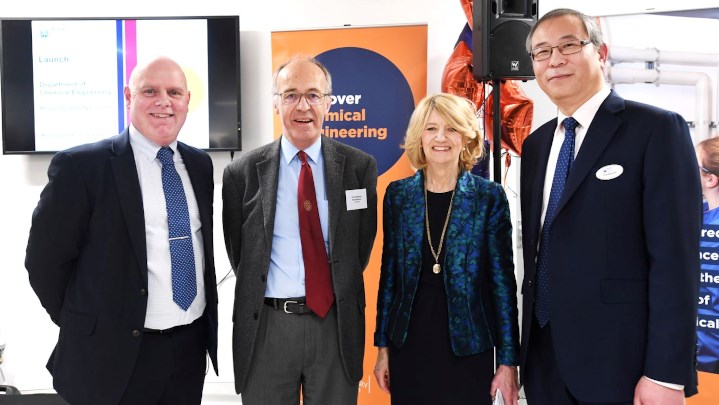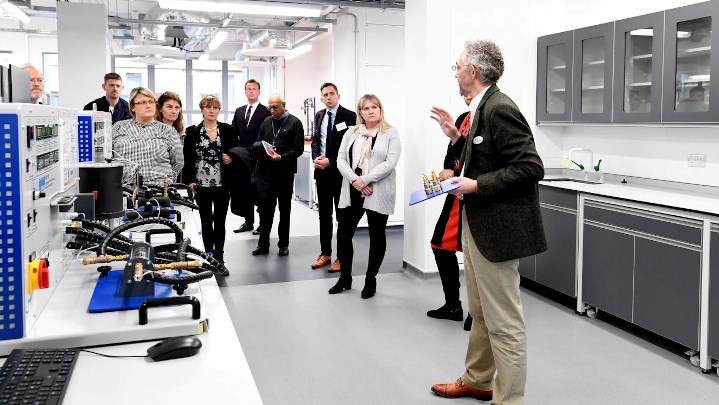New chemical engineering department at Brunel University London

BRUNEL University London’s new Department of Chemical Engineering was officially launched on 29 January 2020.
Stefaan Simons FIChemE, Vice-Provost and Dean of the College of Engineering, Design and Physical Sciences, developed the initial plans for the new Department of Chemical Engineering. It was established in February 2018 and welcomed the first cohort of students in September 2019. It was officially opened on 29 January by Julia Buckingham, Vice Chancellor and President of Brunel University London, and Universities UK President.

The department is situated in the Quad North Building and will occupy a whole floor of the building. The research facilities from the Wolfson Centre for Materials Processing and the Advanced Bioprocessing Centre have now been incorporated into the Department of Chemical Engineering, in addition to substantial ties with Brunel’s existing heat transfer and advance power system teams.
“We have material characterisation facilities, chemical processing facilities, and bioprocessing and bioseparation facilities,” explained Sheng Dai, Professor and Head of the Department of Chemical Engineering. “In addition, we also have a dedicated computing lab and have ensured all the chemical engineering-relevant software has been installed.”
There are four research areas within the department: bioprocess and biopharmaceutical engineering, digital process engineering, emerging energy technologies, and materials for sustainable future.

The first undergraduate and postgraduate students started in September 2019. Brunel offers a three-year Bachelor’s degree or four-year integrated Master’s in Chemical Engineering, a one-year Master’s in Bioprocess Engineering, along with MPhil and PhD research degrees. A one-year industrial placement is optional for undergraduate programmes. The department will also launch the Advanced Chemical Engineering MSc and Materials Engineering MSc in 2022. All courses are designed in close collaboration with IChemE.
In their first year, students are taught core engineering subjects to give them a broad knowledge of engineering in general. There is also a focus on industrial engagement, problem-solving and social/ethical responsibility through the programmes.

According to Dai, the department aims to cultivate future chemical engineering leaders and it will achieve this through three paths. The first is modernising the curriculum to include industrial engagement, professional practice, digitalisation and sustainable development for chemical engineering production. The second is the delivery approach by focussing on research-led learning and practical team-based learning, and the third is ensuring that the students can effectively apply their knowledge to appropriate industrial applications.
Speaking of being the inaugural Head of the Department, Dai said: “I’m very excited to initiate a future-facing chemical engineering programme to address global and industrial challenges. That is my primary motivation having joined Brunel from Newcastle University. In the UK currently there are 33 chemical engineering departments, however we intend to make this department a showcase and benchmark for the 21st century.”
“We focus on bridging the gap between chemical engineering, sustainable development, low carbon emission economics, and digitalisation.”
There are currently eight academic staff, with plans to grow this to 20–25 within the next five years. The department also aims to build a pilot-scale chemical engineering processing R&D facility in the next couple of years.
Recent Editions
Catch up on the latest news, views and jobs from The Chemical Engineer. Below are the four latest issues. View a wider selection of the archive from within the Magazine section of this site.




